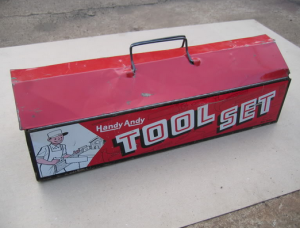Co-Authored by Christine Hensler and John Rieffel
Note:This post originally appeared in The Huffington Post.

The empowering rise of the do-it-yourself Maker Movement has found fertile ground in higher education, cultivating a vibrant community who believe in the effectiveness of learning through doing, sharing and mentoring, playing, exploring, and risk-taking. As exemplified by Case Western Reserve University’s impressive Think [box] Center for Innovation, academic Makerspaces provide participatory contexts for hands-on, fun and collaborative learning that are a refreshing alternative–albeit no substitute–to “sage on the stage” lectures.
Often, Maker Culture in academia is promoted as a valuable tool for increasing (diverse) enrollments in STEM-fields and in applied programs, such as Economics and Entrepreneurship, and most academic Makerspaces are tightly tied to STEM departments. Yet this focus on pathways to STEM, albeit valuable, tends to underestimate the contributions of the full spectrum of the Liberal Arts — particularly the Arts and Humanities. Missing also are accompanying efforts toward the self-reflection and articulation needed to learn not only how things are made, but also how they are embedded and can transform society and culture over time. We believe the ethos of the Maker Movement and that of the Liberal Arts go hand-in-hand.
 As academic environments that strive to train and foster the next generation of global and diverse citizens, the Liberal Arts can uniquely contribute to the desired broader impacts of the Maker movement. We offer more porous boundaries between departments and programs, a unique sense of (historical, cultural, ethical) context and a deeply ingrained sense of creative expression and constant self-reflection and analysis. Most importantly, at the heart of the Liberal Arts is a century-old emphasis on innovation and creativity and a deep dedication to teaching and learning in ways that are not only participatory, hands-on, and digitally blended, but that allow for a wide variety of effective learning opportunities. To remember here is that doing does not always lead to learning.
As academic environments that strive to train and foster the next generation of global and diverse citizens, the Liberal Arts can uniquely contribute to the desired broader impacts of the Maker movement. We offer more porous boundaries between departments and programs, a unique sense of (historical, cultural, ethical) context and a deeply ingrained sense of creative expression and constant self-reflection and analysis. Most importantly, at the heart of the Liberal Arts is a century-old emphasis on innovation and creativity and a deep dedication to teaching and learning in ways that are not only participatory, hands-on, and digitally blended, but that allow for a wide variety of effective learning opportunities. To remember here is that doing does not always lead to learning.
In fact, any successful Liberal Arts College is a Maker Community. At Union College (in Schenectady, NY) we already have a vibrant, if dispersed, Maker Culture: on any given night, students across campus are building elaborate sets in the theater, sewing LED-illuminated Halloween costumes, soldering robotic sensors, and converting popcorn machines into coffee roasters. Too often, however, these activities happen in isolation, with few opportunities for Makers in different disciplines to interact.
The key to integrating Makerspaces into the Liberal Arts (and vice versa) lies in establishing both more organic and structured opportunities for these creative innovators to interact, reflect and learn, pool their resources, and share their skills and knowledge. Our unique angle to solving the logistical riddle of finding space for a monolithic “Makerspace” anchored in a single physical location, is, in true Liberal Arts fashion, to flip the problem on its head and to unify existing creative facilities across the college to form a distributed “Maker Community” staffed by creative students and faculty alike.
At the core of our Liberal Arts approach to harnessing a Maker Community is to connect making with deep learning on curricular, co-curricular, and extra-curricular levels, in particular by integrating and emphasizing the role of the Humanities (the Arts have traditionally had a strong role to play in making) into efforts driven by the Sciences and Engineering. The goal of our holistic and integrated Maker Community is to materialize and connect doing with understanding and reflection, learning with value and knowledge building in context. In other words, we seek to emphasize the importance of any Maker to think about, consider, and integrate new knowledge about culture, society, history, diversity, language, literacy, ethics, and so on, in the act of creation.
Our ambition at Union College is to develop a human-, contextual- and value-centric Maker Community that is deeply integrated into the fabric of the college. We are thrilled to be early participants in MakeSchools.org, a growing online community of academically-based Maker communities. As one of the few Liberal Arts Colleges in the consortium, we hope to advocate strongly for the role of the Humanities in the Maker Movement.
Our mission is to ensure that Makers revolutionize society and industry not only by building circuit boards and 3D-printed cars, but also by mindfully exploring the ways in which we currently think about the uses, roles and values of making itself. In doing so, we are placing not one, but two different tools into the hands of our students: a mechanical or digital tool in one hand and a question mark in the other.
Christine Henseler is Associate Professor of Spanish at Union College. She works on topics pertaining to Generation X, twenty-first century Spanish literature, media and cultural studies, and the humanities.
John Rieffel is Assistant Professor of Computer Science at Union College, NY